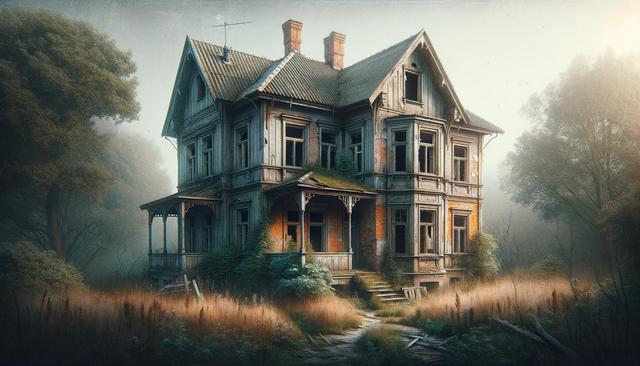The Life Cycle of an Abandoned House
When a house is left behind—whether due to economic hardship, foreclosure, or changes in ownership—it often begins a slow decline. These properties can sit empty for years, affected by weather, vandalism, and neglect. However, an abandoned house is not always doomed to decay. Many forgotten homes eventually re-enter the market through various channels, such as auctions or local government repossessions. For people researching a house to buy, abandoned properties might offer unexpected opportunities. While these homes can require significant renovation, they often come with lower price tags and are situated in neighborhoods ripe for revitalization.
Often, the first step in reactivating an abandoned property is through house selling agencies that specialize in distressed or foreclosed real estate. These agencies work closely with local authorities to identify ownership, resolve legal complications, and prepare the house property for resale. This process can take months or even years, depending on the complexity of the case. Once legal hurdles are cleared, the property is listed for sale, attracting investors or individuals looking for affordable entry points into the housing market.
Why Houses Are Abandoned in the First Place
Understanding the root causes behind abandoned houses is essential for anyone interested in real estate investment or community development. Common reasons include:
- Financial difficulties such as job loss or mounting debts
- Foreclosures due to unpaid mortgages
- Inheritance complications when heirs are unwilling or unable to maintain the property
- Urban migration, where owners move to cities for better opportunities, leaving rural homes behind
- Natural disasters or structural issues making the property uninhabitable
Each of these situations creates a backlog of unused properties, but they also open doors for those ready to invest in houses for $500 in {city} or similar low-cost options. These cases are not uncommon, especially in regions undergoing population decline or economic shifts. What seems like a lost cause to one person may be viewed as a valuable opportunity by another.
Legal and Financial Considerations
Before diving into the purchase of an abandoned house, it’s crucial to understand the legal and financial landscape. These properties often come with baggage—unpaid taxes, liens, or unclear ownership. Partnering with experienced house selling agencies can provide vital guidance through these challenges. Due diligence is essential and may include:
- Conducting a title search to determine legal ownership
- Assessing back taxes or municipal fines
- Inspecting the property for structural integrity
- Understanding zoning laws and local building codes
These steps help ensure that the house property you’re considering is a viable investment. Many municipalities also offer programs to encourage the rehabilitation of abandoned homes, sometimes providing grants or tax incentives for those willing to restore them. These incentives can be especially attractive to individuals or groups looking to invest in houses for $500 in {city}, making the process more affordable and less risky.
Turning Abandoned Properties Into Usable Homes
Transforming an abandoned house into a livable home can be both rewarding and challenging. The process often involves extensive renovations, including plumbing, roofing, electrical systems, and foundational repairs. However, for those with the skills or resources, the outcome can be highly satisfying. Renovated properties not only add value to the investor’s portfolio but also contribute to neighborhood revitalization.
House selling agencies often play a pivotal role in connecting buyers with contractors, legal experts, and local authorities. In some areas, community development programs assist new owners with financing or even labor support for restoration projects. These homes can later be sold at a profit, rented out, or become permanent residences. Whether you’re looking for a house to buy for personal use or as part of a real estate investment strategy, abandoned homes represent a unique niche with potential for growth.
Opportunities in Forgotten Real Estate
Interest in abandoned houses is growing, especially among young investors and urban developers looking for unique opportunities. These properties are often more affordable and can be found in locations that are slowly gaining attention due to urban expansion or revitalization projects. If you’re considering entering the housing market, looking into house property that has been overlooked may offer an edge.
For example, local governments sometimes offer special programs where you can invest in houses for $500 in {city}, making it accessible even for first-time buyers. However, success depends on thorough research, a clear plan, and collaboration with professionals. House selling agencies and legal advisors can provide the necessary support to navigate this unconventional market. With patience and strategic planning, what begins as an abandoned structure can become a valuable asset.
Conclusion: Seeing Potential Where Others See Neglect
Abandoned houses may seem like symbols of decline, but they also represent untapped opportunity. For those willing to look beyond the surface, these forgotten homes can become meaningful investments and even personal residences. Whether you’re searching for a house to buy or exploring ways to revitalize a community, understanding the lifecycle and potential of abandoned properties is key. Collaborating with house selling agencies and doing your due diligence can turn a neglected structure into a successful project. With the right approach, even the most overlooked house property can find a new purpose—and a new owner.




Leave a Reply